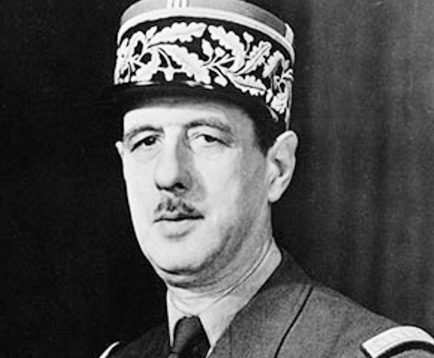WITH Parliamentary arithmetic deadlocked on all options, the default position of ‘No-Deal’ Brexit looms larger.
I voted to kick England out of Europe. Why? Because De Gaulle called it right. England doesn’t belong in Europe, remains Atlanticist, attached to imperial preference, consumed by the ‘great-game’ of divide-and-rule, of balancing powers in Europe, never committed to “ever closer union”, focused on financial chicanery over agriculture and manufacturing. Was De Gaulle wrong? After the illusion of the Edward Heath era, Britain was only ever in Europe to disrupt it. That game is now up.
Whether through opt-outs or rebates, through Maastrict and Lisbon, England’s subsequent conduct in Europe has been as drag-weight and chief saboteur. On reunification, Francois Mitterrand sought to bind Helmut Kohl’s Germany to deepen the European core. British diplomacy embraced Eastern Europe to widen, make shallow and reduce it to free-trading nations. England weighed in under Ireland’s Pat Cox’s cloak to undermine the Commission, the EU’s centre of gravity. And the Jacques Delors social-Europe of the 90s gave way, under English influence, to free-market liberalism.
Things turned with the creation of the Euro. Decisions, increasingly, were taken by the Eurozone. The capacity to disrupt waned, the mileage for further meddling ran out. Whether Little-England or Global Britain, Brexit was the means to get out, to save its soul, or lose the sense of itself.
Will England’s difficulty be Northern Ireland’s opportunity?
I hope so. Northern Ireland is a profoundly dysfunctional polity. Alone in Europe we cannot elect the (state-level) government. We can’t vote Labour. Conservatives don’t seek a mandate here. We can’t elect the government and more importantly, we can’t chuck a bad government out.
Voting in the Northern Ireland entity is like going into the bookies and being told you can back any horse you want – except the horses that might win. We can vote for losers all day long, but not winners. After 97 years of Northern Ireland, we remain a quarantined zone, the UK’s political slum. Local government is through a Stormont-based native-council, or what apartheid-era South Africans called a Bantustan. Well subsidised, maybe, but a Bantustan nonetheless.
As a long-time campaigner to normalise politics within the UK, that avenue is long closed, over, dead. The Brexit vote has allowed us to throw the balls in the air. ‘Creative-chaos’, the policy wonks call it. Or Tony Blair’s prophetic words, to shake the kaleidoscope, and re-order our world. After a change of government, a hard Brexit will allow us to re-join Europe through a border-poll. A hard Brexit will allow us to join an independent Irish state, whose government we can, at least, elect. A border poll, for people like me, is a vote to get the vote - for the first time ever. I’d do that in a heartbeat.
The Deltapoll online poll published in September 2018 asked the question: “Imagine now that the UK decided to leave the EU. Under these circumstances how would you vote in a referendum on the constitutional arrangements of the island of Ireland?”
More than half, 52%, said they would vote for a united Ireland, while 39% said they would vote for Northern Ireland to remain part of the UK. In the event of a ‘hard’ Border, 56% said they would vote for unity, with only 40% voting to remain in the UK.
The most recent Lucidpoll, published in December found, in the event of a ‘No-Deal’ Brexit, 55% would vote for unity, with only 42% to remain in the UK.
These polling figures are unparalleled since partition.
A hard Brexit will hasten the break up of the UK in other ways.
Scotland will have a second independence vote, a second penalty kick to drift off, politically, towards Scandinavia. Whether they have the cojones to do so remains to be seen, but my vote for creative chaos gives them the chance.
Hard Brexit will see the City of London diminish. The apex of an imbalanced economy, the ‘City’ is, effectively, a criminal paradise facilitating money-laundering, tax-evasion and the myriad dodgy financial products of predatory casino capitalism. Economists like the Guardian’s Larry Elliot believe the shock-treatment of EU withdrawal could force Britain to focus on developing the real, productive, manufacturing base required to re-balance the economy. What’s not to like?
Whether Little England or Global Britain, the UK is splintering. And we, locked in the Northern Ireland entity, may soon be admitted to the franchise. Interesting times.
Mark Langhammer is a member of the Irish Labour Party and a leading education trade unionist. Mark is writing here in a personal capacity.






